Introducing our new Executive Committee Members
We are delighted to introduce a new cohort of ECPR Executive Committee Members elected for the term 2021–2027.
To help you get to know them ahead of taking office in May, we've asked them to tell us a little about their background, reflect on their personal journey within the ECPR community, and share what they look forward to working on during their term on the Executive Committee.
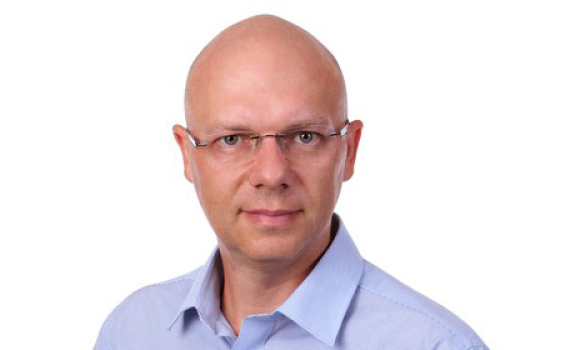
Ladislav Cabada
Metropolitan University Prague
'To become a member of the ECPR Executive Committee is an honour for me and also a pledge to all member institutions that supported me.'
In one word, what does ECPR symbolise, to you?
Network
About Ladislav
Ladislav Cabada is Vice-Rector for Research, Quality and Development and Associate Professor in the Department of Political Science and Anglophone Studies of the Metropolitan University Prague, where he supervises the MA and PhD programmes in political science. His research focuses mainly on the comparative politics of East Central Europe, regionalism and development studies in Central and South-Eastern Europe, Europeanisation, Euroscepticism, populism and nativism, and political anthropology.
Recent publication: Cabada, L. (2021) East-Central Europe Searching for (European) Values: how to be more than the 'proud periphery'? In: Kavaliauskas, T. (ed.) Europe Thirty Years After 1989. Transformations of Values, Memory, and Identity. Leiden: Brill, pp. 7-26.
Hobbies and interests: Tourism, gardening.
About being elected
What motivated you to put yourself forward in this Executive Committee Election?
I hope to bring my experience in, and knowledge of, the institutionalisation and development of political science at the national (Czechia, Slovenia) and regional (Central European), level, to the continental, and even global, level.
Name three things you would like to achieve within your term as an Executive Committee Member
- To launch and support activities that lead to the reduction of 'regional' differences in political science
- To represent the (East-)Central European 'fringe' within the ECPR
- To support further development of activities respecting plurality and tailor-made nature of different types of stakeholders within and outside ECPR
About ECPR
Tell us about your first encounter with the ECPR
My first active encounter with the ECPR is more than twenty years old. I participated in a workshop organised in Florence in 2001, where we presented a co-authored analytical paper about the electoral studies discipline in East-Central Europe. Elemer Hankiss and Jean Blondel were the main organisers of the event and for a young scholar, their openness and cordiality were an important positive impetus.
In what way has being a part of the ECPR community benefited you so far?
For almost six years I have personally been active within the ECPR [through participating] in different events, as well acting as the Official Representative (OR) for my university. In all spheres the ECPR presents an important organisation connecting political scientists in Europe and worldwide. From all the events I took part in, I benefited personally, and my university did too.
In one word, what does ECPR symbolise, to you?
Network
Christian Haerpfer
University of Vienna
'I feel very excited and enthusiastic about this amazing accolade and recognition from my fellow European political scientists.'
In one word, what does ECPR symbolise, to you?
Excellence
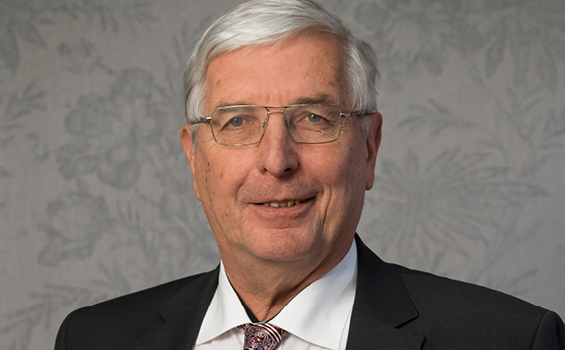
About Christian
Christian Haerpfer is Associate Professor of Political Science in the Department of Political Science at the University of Vienna. Since 2017, he is also Full Professor in the Department of Government and Society at the UAE University. Christian is President of the World Values Survey since 2013 as well as Director of the Eurasia Barometer and the New Democracies Barometer since 1992.
Recent publication: Haerpfer, C.W. (2019) Democratization. Oxford: Oxford University Press.
Hobbies and interests: Travelling, culture, cinema, animals of all shapes and sizes.
About being elected
What motivated you to put yourself forward in this Executive Committee Election?
For many years, I was publishing together with Richard Rose from the University of Strathclyde, one of the founding fathers of the ECPR, and I was excited to step in his much bigger footsteps and contribute to our discipline on the Executive Committee.
Name three things you would like to achieve within your term as an Executive Committee Member
- Higher visibility of European Political Science in the world
- Higher reputation of the European political research
- Connecting political scientists of all generations across the whole of Europe in high-level conferences and meetings
About ECPR
Tell us about your first encounter with the ECPR
My first encounter with the ECPR was my participation at the Joint Sessions of Workshops at the University of Amsterdam in April 1987, which resulted in a co-authored book on Green Parties in Europe, published by Westview Press, USA.
In what way has being a part of the ECPR community benefited you so far?
Some of my book chapters – and the collective volumes – have originated in papers at ECPR Joint Sessions of Workshops.
In one word, what does ECPR symbolise, to you?
Excellence
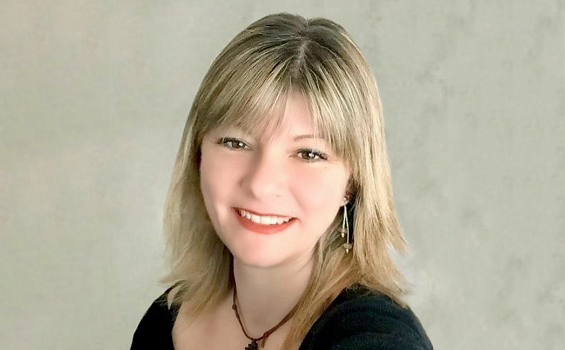
Daniela Irrera
Universita di Catania
'Most importantly, I am pleased to have the chance to help IR scholars become more involved and interested in joining ECPR events and activities.'
In one word, what does ECPR symbolise, to you?
Achievement
About Daniela
Daniela Irrera is Associate Professor of Political Science and International Relations at the University of Catania, where she serves as Departmental Erasmus Coordinator, Deputy Director for Internationalisation and Research, and Vice-coordinator of the PhD programme in Political Sciences. Her primary research focuses on action and influence on global politics by non-state actors, both positive (civil society organizations and NGOs) and negative actors (organised crime and terrorism).
Recent publication: Irrera, D. and Wong, R. (2019) Regional Variations and Crisis. Regional Variations and Crisis Comparing European Union and Association of Southeast Asian Nations Integration Dynamics. In: Spoon, J. and Ringe, N. eds The European Union and beyond. London: Rowman & Littlefield Publishers/ECPR Press, pp. 215-236.
Hobbies and interests: Multilingual and multicultural. Loves travelling, practising yoga and mindfulness meditation daily, reading tons of books, skiing.
About being elected
What motivated you to put yourself forward in this Executive Committee Election?
I consider ECPR to be the place for intellectual growth and exchange, in which all scholars from different backgrounds and with different approaches can feel represented and inspired. Serving as Steering Committee Chair of the Standing Group on International Relations, I notice that IR scholars have always felt at home in the ECPR community. I am ready to serve such a goal and I am also ready to contribute as the member of the Executive Committee.
Name three things you would like to achieve within your term as an Executive Committee Member
I would like to focus on:
- Expanding publication outlets
- Supporting more Standing Group events, including webinars and virtual facilities to those unable join or afford full registration fees
- Promoting young researchers’ initiatives
About ECPR
Tell us about your first encounter with the ECPR
I attended my first ECPR General Conference in 2003, in Marburg, as a first year PhD researcher. I gave my first paper presentation to a panel organised by the Standing Group on Organised Crime. I realised I was destined to become an academic!
In what way has being a part of the ECPR community benefited you so far?
Thanks to the ECPR, I entered a wide community of scholars, practitioners and friends. Joining panels and conferences, serving on the Steering Committee of the Standing Group on Organised Crime and then chairing the Standing Group on International Relations, inspired my research, my teaching skills and my personal profile as a scholar.
In one word, what does ECPR symbolise, to you?
Achievement
Gianluca Passarelli
Sapienza University of Rome
'To serve the ECPR community is an enormous honour, a great privilege, and an enormous responsibility. I pledge to do my best to earn your trust and to work hard to advance the role and the standing of the ECPR.'
In one word, what does ECPR symbolise, to you?
Culture
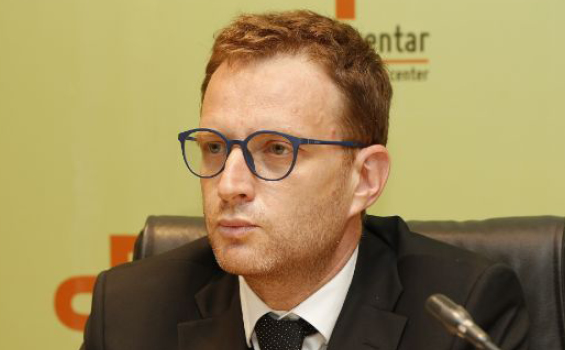
About Gianluca
Gianluca Passarelli is Professor of Political Science and Comparative Politics in the Department of Political Sciences at the University of Rome–La Sapienza. Gianluca's research looks into the role of institutions, leaders, and political parties. He studies the role and the power of the presidents, the influence of electoral systems on voting behaviour and intra-party dynamics, presidential political parties, and electoral behaviour.
Recent publication: Passarelli, G. (2020) Preferential Voting Systems: Influence on Intra-Party Competition and Voting Behaviour. [online] www.palgrave.com. Palgrave Macmillan.
Hobbies and interests: Writing, reading, visiting museums, running, cooking (but only for a selected few)
About being elected
What motivated you to put yourself forward in this Executive Committee Election?
To offer my ideas to the community, to face and measure myself in, a very exciting challenge, and to serve with great humility but also passion and enthusiasm.
Name three things you would like to achieve within your term as an Executive Committee Member
1. Europe: I’d work together with all the colleagues and EC members to make the ECPR the house of all the European scholars, and the departments of political sciences, 'from Portugal to Russia, and from Norway to Greece'. The ECPR must be a lighthouse for all those– Europeans and from the rest of the globe - looking for a safe, free, democratic, and equal landing to bring their cultures, their ideas, their identities, and dreams always respecting each other under the mutual umbrella of the love for the science and its principles.
2. Community: The ECPR membership is based on the departments, which are collective actors. But ECPR simply does not exist without the idea that it represents a family, a large community. We should emphasise and strengthen the sense of belonging to the vast group beyond the borders of ones’ specific research group's interests.
3. Person: Every single participant in the ECPR activities is crucial to improving our understanding of the world and advancing the discipline. The individuals should feel like they are a part of an organisation, a community, and integrated into a network of people. The liberal values are at the core of the ECPR, and the full respect for each member is fundamental to the growth of our association. From this perspective, I will try to always put the human being at the centre of our scientific project. I’ll be pleased to see an increasing number of young scholars involved in all ECPR projects and activities.
About ECPR
Tell us about your first encounter with the ECPR
One of my PhD supervisors was Jean Blondel, so I always heard of the ECPR during the very formative experience that was the period I spent at the University of Siena. My real first encounter was negative… as my paper proposal was rejected. That was in 2011, but following which I always attended the General Conference. The Joint Sessions Workshop on political parties I took part in Salamanca was really amazing; I learned a lot, thanks to the great colleagues and coordination of Susan Scarrow. Eversince I cultivated my ECPR networks and in 2015 I co-founded the ECPR Standing Group on Presidential Politics, together with Robert Elgie.
In what way has being a part of the ECPR community benefited you so far?
I have had the chance to learn from wonderful colleagues within the Standing Group on Presidential Politics as well as during the participation to General Conferences and Joint Sessions. I had the chance to network, to strengthen my skills, and to share my works and ideas. ECPR is the best place for a scholar to be. And I have said that long before being elected as a member of the Executive Committee; so avoiding any conflict of interest.
In one word, what does ECPR symbolise, to you?
Culture
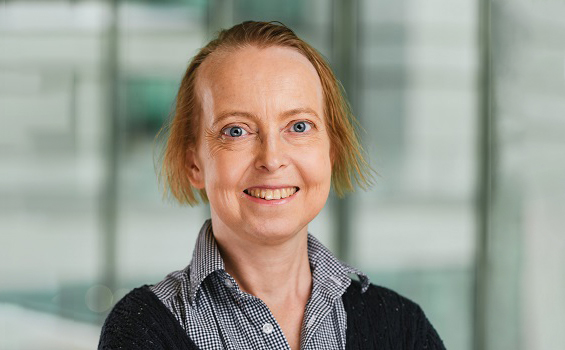
Anne Rasmussen
University of Copenhagen
'I am honoured to have been elected to serve an organisation that has been an important anchor point for me throughout my academic career.'
In one word, what does ECPR symbolise, to you?
Diversity
About Anne
Anne Rasmussen is Professor of Political Science at the University of Copenhagen. She is also affiliated with the Department of Public Administration, Leiden University, Professor II at the Department of Comparative Politics, University of Bergen and a Fellow at the Montesquieu Institute in the Netherlands. Anne's current research analyses interest representation, (inequality in) political representation, public opinion, political parties, and public policy.
Recent publication: Rasmussen, A., Binderkrantz, A.S. and Klüver, H. (2021) ‘Organized Interests in the Media and Policy Congruence: The Contingent Impact of the Status Quo’, European Journal of Political Research, OnlineFirst (open access).
Hobbies and interests: Yoga, travel (member of the Travellers Club of Denmark), winter bathing, (Political) TV series.
About being elected
What motivated you to put yourself forward in this Executive Committee Election?
My motivation for serving the ECPR Executive Committee is first and foremost that I am keen to give back to an organisation that has played an important role for me throughout my whole academic career. Ever since my PhD, barely a year has passed in which I haven’t participated in an ECPR event – many of which I helped organise. I have directed workshops at ECPR Joint sessions (twice), been a section chair at the ECPR General Conference, and chaired numerous ECPR conference panels. I have especially enjoyed working with younger scholars – I have taught on six ECPR summer schools, both on Party Politics and Interest Groups. I have also had the opportunity to organise the ECPR Summer School on Interest Groups in Copenhagen in 2016 and serve as Steering Committee Member of the Standing Group on Interest Groups.
Name three things you would like to achieve within your term as an Executive Committee Member
- I want to see continued support for institutional arrangements that bring diverse scholars together, blending insight and seeding new knowledge. Such diversity is vital for progress in a world where the resources available to scholar vary by country and institution.
- The ECPR could do even more to support event participation from poorly resourced institutions. Training, mentoring and summer schools for emerging scholars are fundamental to stimulating, nurturing and developing European talent. Such activities should retain high priority and receive continued ECPR financial support.
- My vision is for the ECPR to remain the organisation that represents and reflects the breadth of our discipline, is a home for diverse types of research, and a beacon for putting knowledge into practice, by taking an active role in current political issues.
About ECPR
Tell us about your first encounter with the ECPR
My first encounters must have been the ECPR Summer School on EU Integration in 2003 and the Second Pan-European Conference on EU Politics in Bologna in 2004. I remember arriving at these events as an unknown PhD student (without a famous supervisor!). However, I can also remember how grateful I felt for all the useful feedback I got, the people I met and the research community I got introduced to during these events…Coming from a university where the type of research I carried out was not 'mainstream', it was a privilege to meet other PhD students and Professors with similar research interests. The contacts I made back then were invaluable for my next steps in academia.
In what way has being a part of the ECPR community benefited you so far?
Early on it allowed me to meet junior and senior scholars with similar research interests to my own, which was extremely motivating and probably played an important role for my choice to pursue a career in academia. I also met several people who later became valuable collaborators. Finally, the wide variety of research that is conducted by the ECPR’s broad community of scholars inspired me to think about several new research agendas along the way.
In one word, what does ECPR symbolise, to you?
Diversity
Amy Verdun
University of Leiden
'My reasons for serving [on the Executive Committee] include my passion for contributing to our network of political scientists, so I am thrilled to have been given the opportunity to serve the ECPR community.'
In one word, what does ECPR symbolise, to you?
Community
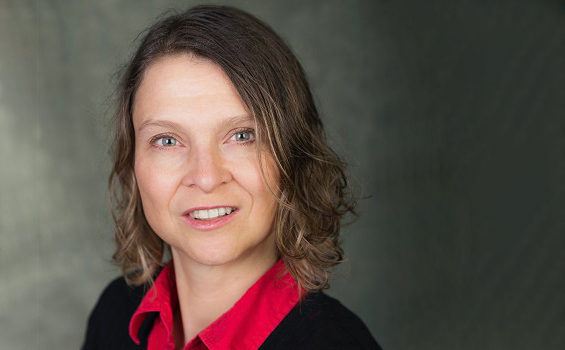
About Amy
Amy Verdun is Full Professor at University of Victoria and visiting Full Professor at Leiden University. Her research focuses on European integration widely defined: political economy, policy, governance, integration theories, and comparative politics.
Recent publication: Howarh, D. and Verdun, A. (eds) (2021) Economic and Monetary Union at Twenty: A Stocktaking of a Tumultuous Second Decade. London: Routledge
Hobbies and interests: Enjoys the outdoors (summer and winter activities), travelling, learning languages, volunteering, cooking, reading, watching movies, and spending time with friends and family.
About being elected
What motivated you to put yourself forward in this Executive Committee Election?
From its foundation until recently I was a member of the Steering Committee of the ECPR Standing Group on European Union (SGEU), having also served both as its co-Chair and Chair. The Steering Committee encouraged me to put my name forward to become a member of the ECPR Executive Committee and I was of course very honoured to accept their suggestion. Not only do I intend to bring to this role my experience from the SGEU, but also my insights gained from having served on political science professional associations in North America (having been a board member of the European Union Studies Association and the Canadian equivalent), as well as those learnt when I Chaired the IPSA Research Committee on European Unification, and most recently from my current role as Chairperson of the Dutch Political Science Association (Nederlandse Kring voor de Wetenschap der Politiek).
Name three things you would like to achieve within your term as an Executive Committee Member
In these difficult times, we need to continue to stimulate collective endeavours and academic exchange. ECPR has already taken its conferences and summer schools online. I wonder what else can be done to advance political science, such as through mentorship – providing spaces for connections, drawing on the strengths of the Standing Groups and Research Networks. More generally, I would be particularly happy to take on a leadership role on the Executive Committee and think what the ECPR as a whole can do for our members. One immediate area in which I hope to contribute is to build further on the strengths of the ECPR Standing Groups. Our SGEU Steering Committee ensured that our governance represented political science in the widest sense, was inclusive, and tried to support the needs of a wide membership. I will take these values and practices to the Executive Committee.
About ECPR
Tell us about your first encounter with the ECPR
I participated in the ECPR Joint Sessions in 1996 in Oslo. It was a terrific workshop. It gave me an opportunity to present my work, expanded my network, and dare I say, I made friends for life!
In what way has being a part of the ECPR community benefited you so far?
It has not just benefitted me, but also the contributed to the development of a European political science community. In addition to facilitating scholarly conferences, it has enabled the professionalisation of the discipline as well as enhanced the quality and profile of European political science.
In one word, what does ECPR symbolise, to you?
Community
